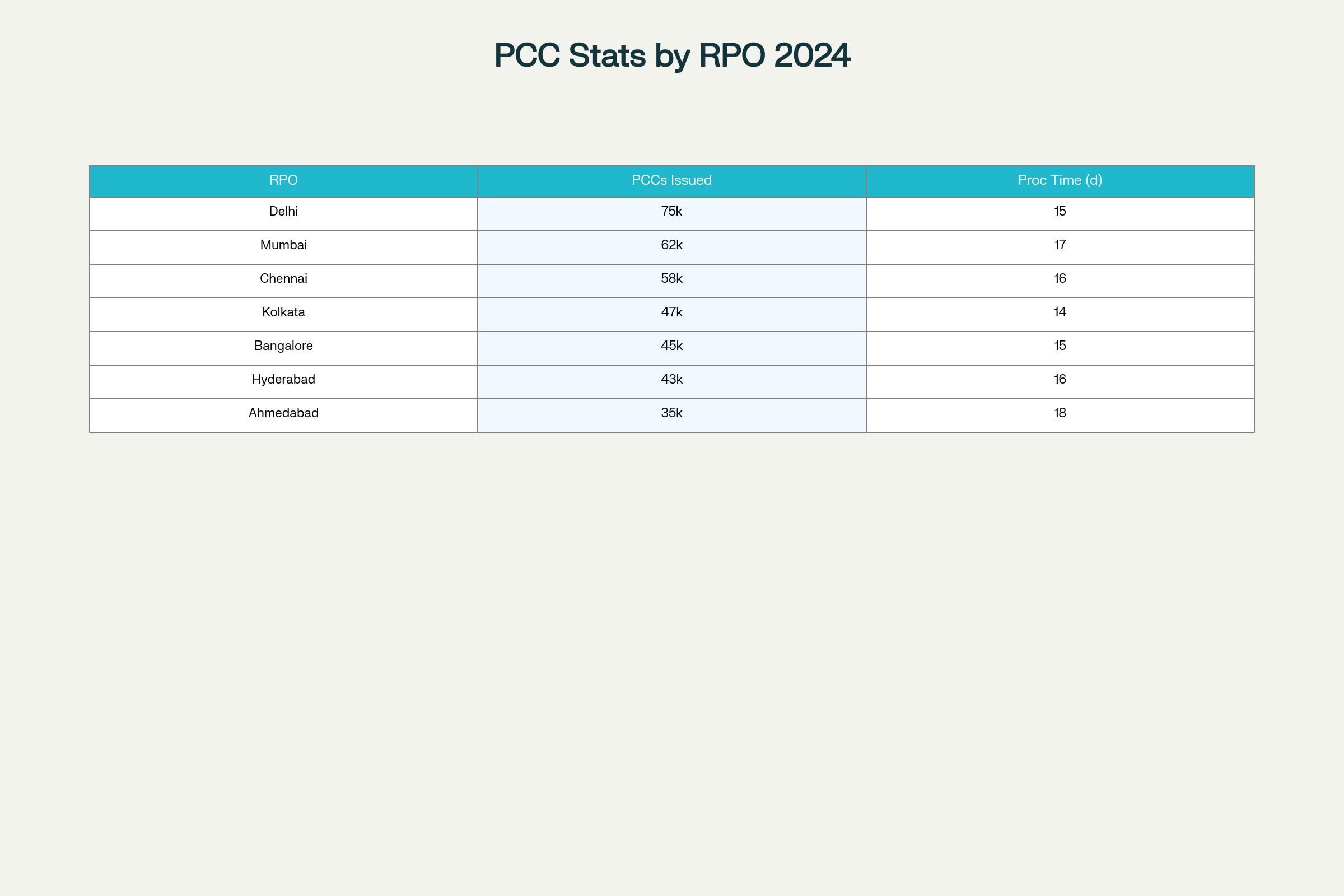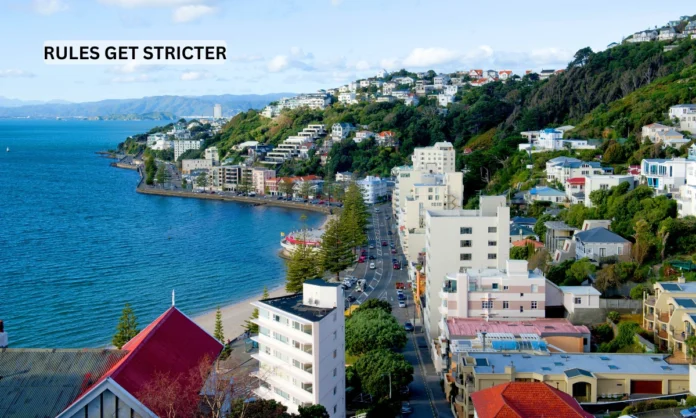Key Highlights:
- New Requirements: From December 1, 2025, Immigration New Zealand will only accept police clearance certificates from India’s Regional Passport Offices under the Ministry of External Affairs
- Previous System Invalid: Documents from local police stations, Deputy Commissioners, and Superintendent offices will no longer be accepted due to authentication difficulties
- Streamlined Process: The change aims to standardize documentation and reduce processing delays caused by inconsistent certificate formats
Initial Context: Policy Shift Reflects Growing Security Concerns
Indian nationals seeking New Zealand visas face a significant procedural change that underscores Immigration New Zealand’s commitment to document authentication and security verification. The New Zealand tightened police clearance rules represent a systematic overhaul of background check procedures that have been in place for years. This policy revision, announced on September 1, 2025, marks a pivotal moment for thousands of Indian visa applicants who have traditionally relied on multiple documentation sources for their New Zealand tightened police clearance rules compliance.
The timing of this announcement reflects broader international trends toward enhanced immigration security measures. Immigration New Zealand officials indicated that the New Zealand tightened police clearance rules emerged from practical challenges encountered during document verification processes. These difficulties stemmed from significant variations in certificate formats issued by different authorities across India’s diverse administrative landscape.
The policy specifically targets Indian nationals residing in India, while maintaining existing requirements for Indian citizens living overseas and non-Indian nationals who have previously resided in India. This distinction highlights the nuanced approach Immigration New Zealand has adopted in implementing the New Zealand tightened police clearance rules.
Understanding the Authentication Crisis Behind Policy Changes
- Immigration New Zealand previously accepted certificates from multiple sources including local police stations and Deputy Commissioner offices
- Document format inconsistencies created substantial verification challenges for immigration officers
The root cause of the New Zealand tightened police clearance rules lies in systematic authentication problems that plagued the previous framework. Immigration New Zealand officials documented persistent difficulties in verifying the legitimacy of police clearance certificates issued by various Indian authorities. These challenges encompassed format variations, authentication protocols, and verification procedures that differed significantly across India’s administrative regions.
Under the previous system, visa applicants could submit police clearance certificates from local police stations, offices of Deputy Commissioners, or Superintendents of Police. However, Immigration New Zealand found these documents were “in an inconsistent format and more difficult to authenticate,” prompting the need for the New Zealand tightened police clearance rules. The authentication challenges extended beyond mere formatting issues, encompassing security features, official signatures, and verification protocols that varied considerably across different issuing authorities.
The New Zealand tightened police clearance rules address these concerns by centralizing certificate issuance through Regional Passport Offices, which operate under standardized Ministry of External Affairs protocols. This centralization ensures consistent formatting, security features, and authentication procedures across all certificates submitted to Immigration New Zealand.
Document authentication challenges also affected processing timelines, with immigration officers requiring additional time to verify certificates from various sources. The New Zealand tightened police clearance rules aim to streamline these processes by establishing a single, standardized verification pathway.
Regional Passport Office Requirements and Processing Framework
- Regional Passport Offices now serve as the exclusive source for acceptable police clearance certificates
- Applicants must ensure certificates are less than six months old when submitting visa applications
- Fingerprinting may be required as part of the clearance process depending on regional procedures
The implementation of New Zealand tightened police clearance rules transforms the application landscape for Indian visa seekers. Regional Passport Offices, operating under the Ministry of External Affairs, become the sole authorized source for police clearance certificates accepted by Immigration New Zealand. This requirement applies exclusively to Indian nationals currently residing in India, maintaining separate provisions for overseas Indian citizens and non-Indian nationals.
Processing requirements under the New Zealand tightened police clearance rules mandate that certificates must be less than six months old at the time of visa application submission. Immigration New Zealand may accept older certificates up to one year old but reserves the right to request updated documentation at any stage of the processing cycle. This flexibility acknowledges potential delays in visa processing while maintaining security standards.
The application process involves multiple steps, beginning with registration on the Passport Seva portal (passportindia.gov.in). Applicants must complete online forms, pay applicable fees, and schedule appointments at designated Passport Seva Kendras or Post Office Passport Seva Kendras. The New Zealand tightened police clearance rules require personal attendance for biometric verification and document submission.
Regional variations may affect processing procedures, with some Regional Passport Offices requiring fingerprinting as part of the verification process. These requirements reflect local security protocols and may extend processing timelines for applicants in certain regions.

Police Clearance Certificate Issuance by Indian Regional Passport Offices (2024)
Implementation Timeline and Compliance Strategies for Applicants
- December 1, 2025 implementation date provides applicants with preparation time
- Early application submission recommended due to processing complexities
- Translation requirements apply for certificates issued in regional languages
The New Zealand tightened police clearance rules implementation date of December 1, 2025, provides Indian visa applicants with a three-month preparation window. This timeline acknowledges the administrative complexities involved in transitioning from multiple documentation sources to a centralized system through Regional Passport Offices.
Applicants must factor additional processing time into their visa application schedules under the New Zealand tightened police clearance rules. Regional Passport Offices typically require 15-18 days for certificate processing, though timelines may extend based on background verification requirements.

Police Clearance Certificate Issuance by Indian Regional Passport Offices (2024)
Immigration New Zealand emphasizes the importance of early application submission, particularly for time-sensitive travel plans.
Translation requirements add another layer of complexity to the New Zealand tightened police clearance rules compliance process. Certificates issued in regional languages require certified English translations, which applicants must arrange through authorized translation services. These translations must accompany the original certificates when submitting visa applications.
Background verification processes may extend overall timelines, as Regional Passport Offices coordinate with local police authorities to complete character assessments. The New Zealand tightened police clearance rules maintain these verification standards while centralizing the documentation source.
Strategic Implications for India-New Zealand Immigration Relations
The New Zealand tightened police clearance rules reflect broader trends in international immigration policy toward enhanced documentation standards and security verification protocols. This policy shift positions New Zealand among countries implementing stricter authentication requirements for visa applications from high-volume source countries.
For Indian travelers, the New Zealand tightened police clearance rules necessitate revised planning approaches for visa applications. The centralized system through Regional Passport Offices may initially create bottlenecks as processing volumes concentrate through fewer outlets. However, long-term benefits include standardized processing procedures and reduced application rejection rates due to documentation issues.
Immigration consultants and legal advisors must adapt their guidance frameworks to accommodate the New Zealand tightened police clearance rules. Client counseling now requires emphasis on early application submission, proper documentation channels, and realistic timeline expectations for certificate procurement.
The policy change may influence similar adjustments by other countries accepting large numbers of Indian visa applications. The New Zealand tightened police clearance rules could serve as a template for enhanced documentation standards in international immigration processes.


